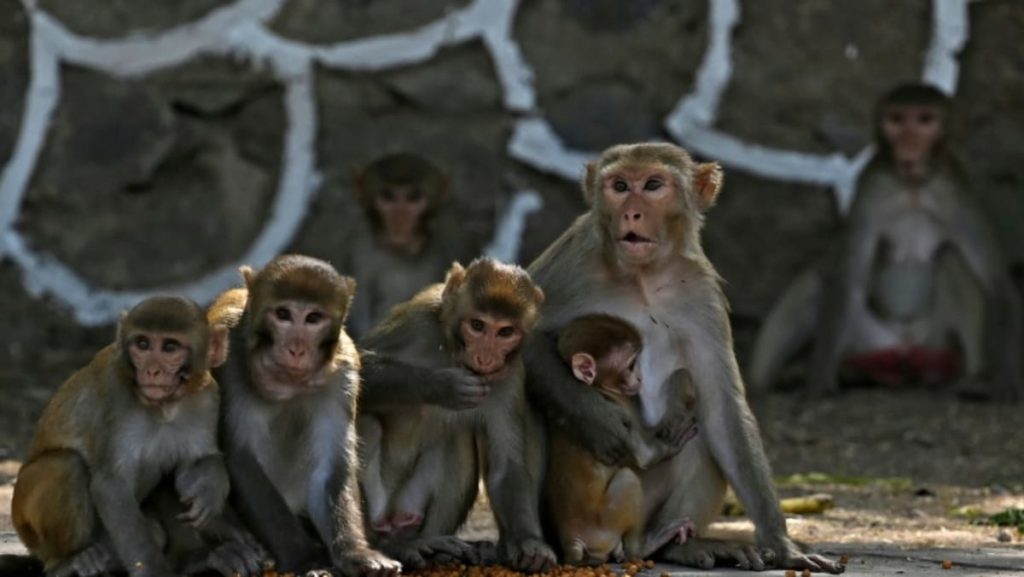In India, dozens of monkeys have tragically drowned in a well as a result of the intense heatwave that has been gripping the country. This incident occurred in the state of Jharkhand, where temperatures have soared beyond 45 degrees Celsius. The heatwave has been a serious concern for both humans and wildlife alike, with lakes drying up and villagers struggling to find water. The situation has become so dire that an Indian court recently called for a national emergency to be declared due to the high number of deaths caused by the extreme weather conditions.
The heatwave has not only impacted human lives but has also taken a toll on the local wildlife. In this particular case, nearly 40 monkeys lost their lives as they attempted to find water in the Palamu district. The lack of available water sources led them to the well where they tragically drowned. Forest officials are currently investigating the incident and are awaiting the results of post-mortem examinations to determine the cause of death. This heartbreaking event serves as a reminder of the devastating effects of climate change on vulnerable animal populations.
Climate change has been identified as a contributing factor to the increasing frequency and intensity of heatwaves in India. The prolonged hot weather and drought conditions are a result of human-induced climate change, which is a significant threat to both humans and wildlife. Scientists have warned that these extreme weather events should be seen as a warning sign and a call to action to address climate change. The impact of climate change on vulnerable communities and ecosystems is becoming more apparent, and urgent measures need to be taken to mitigate its effects.
The scorching temperatures in India have not only led to the loss of human lives but have also resulted in the tragic deaths of wildlife. The desperate search for water in villages and the drying up of lakes have left animals vulnerable and struggling to survive. The incident of monkeys drowning in a well is a stark example of the harsh reality faced by wildlife in regions impacted by climate change. The need for sustainable and climate-resilient solutions to address the effects of heatwaves and drought is becoming increasingly apparent as extreme weather events become more frequent.
The impact of the heatwave in India serves as a stark reminder of the urgency of addressing climate change and its devastating effects on both human and animal populations. As temperatures continue to rise and extreme weather events become more frequent, the need for immediate action to combat climate change becomes increasingly critical. The tragic deaths of the monkeys in Jharkhand highlight the vulnerability of wildlife to the effects of climate change and the urgent need for measures to protect vulnerable species. Climate change is a global crisis that requires a concerted effort to reduce greenhouse gas emissions and transition to a more sustainable future.
The incident in Jharkhand serves as a poignant example of the toll that climate change is taking on vulnerable ecosystems and species. The heatwave in India has highlighted the need for immediate action to address the root causes of climate change and protect both human and animal populations from its devastating effects. The tragic deaths of the monkeys in the well are a somber reminder of the urgency of taking meaningful steps to combat climate change and build a more sustainable future for all. Urgent action is needed to address the impacts of climate change and protect vulnerable communities and ecosystems from the growing threat of extreme weather events.


